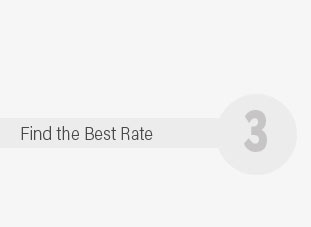 |
 |
 |
|---|
 |
 |
 |
 |
|---|
 |
 |
 |
 |
 |
 |
|---|

Comparing Auto Insurance Quotes: What to ExpectIn the multifaceted world of auto insurance, comparing quotes can often feel like deciphering a complex code, but understanding the nuances can save you a significant amount of money and stress. When you embark on this journey, expect a tapestry of offerings, each woven with its own set of coverages, premiums, and deductibles. It's essential to approach this task with a keen eye for detail and an understanding of what each component means for you and your vehicle. Firstly, why compare? It's a question that might pop into your mind as you consider the time investment required. The short answer is that rates can vary dramatically between providers, even for the same coverage levels. By comparing, you're not just looking for the cheapest option; you're seeking the best value for your specific needs. This involves considering factors such as your driving history, the make and model of your car, and even your location. All these elements can influence the premiums quoted by different insurers. When you start collecting quotes, expect to provide personal information. Some might find this intrusive, but it's a necessary step for insurers to calculate an accurate quote. They will typically ask for your age, address, vehicle details, and driving history. This data helps them assess risk and tailor their offerings accordingly. Remember, the more accurate the information you provide, the more precise your quote will be.
Another point to ponder: the reputation and reliability of the insurance provider. It's not just about the numbers. An insurer's reputation for customer service and claims handling can be just as crucial as the cost. Look for reviews and ratings from current and past customers, and perhaps even check their standing with organizations like the Better Business Bureau. As you compile and compare quotes, be wary of quotes that seem too good to be true. Extremely low premiums might come with high deductibles or inadequate coverage limits. It’s a delicate balance, but one worth striking to ensure you’re not left in a lurch when you need your insurance the most. In conclusion, the process of comparing auto insurance quotes is more than just a financial exercise; it's an opportunity to tailor your coverage to suit your life. While it may require a bit of patience and diligence, the peace of mind that comes with knowing you have the right coverage at the right price is invaluable. Take your time, ask questions, and don't rush. Your car, your wallet, and your future self will thank you. https://www.freeway.com/auto-insurance/
The best way to find savings is by comparing auto insurance rates from multiple carriers. But that can get overwhelming fast, especially if you have a less than ... https://www.bankrate.com/insurance/car/rates/
We've evaluated insurance companies, both large and small, to help you compare car insurance rates and find the coverage you need at a price you can afford. https://www.usnews.com/insurance/auto
Comparing car insurance quotes from multiple companies before buying a policy may save you hundreds or even thousands of dollars per year, according to our ...
|
|---|